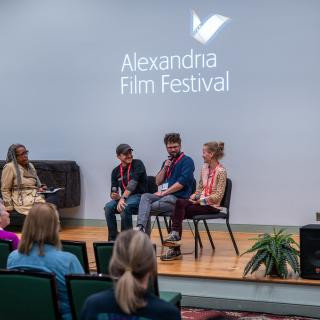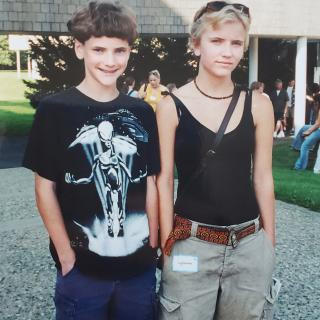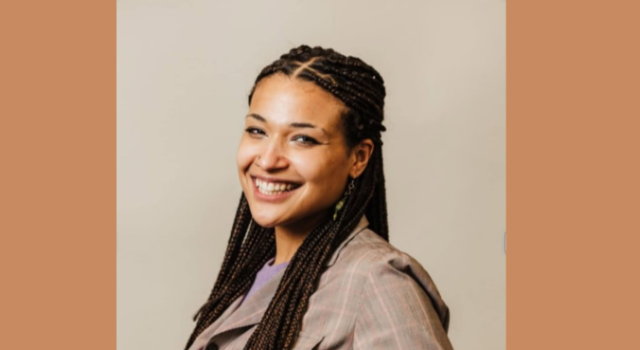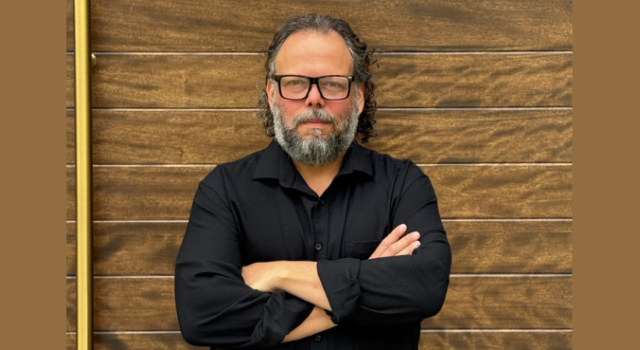Filmmaker Lysandra Petersson 00F’s Lifetime of Reel Adventures
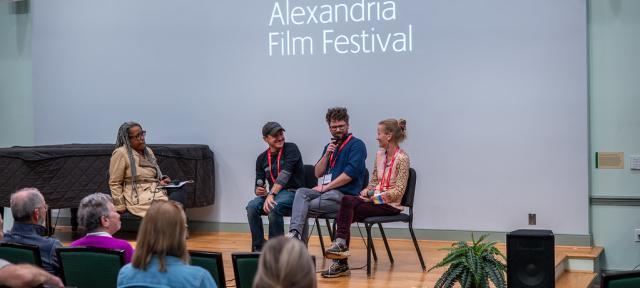
Petersson broke into filmmaking after meeting some Hampshire alums in the industry as an undergraduate. More than 20 years later, she runs her own full-service production house, Deep Structure, and has made several award-winning series and films.
We spoke with her about the impact of her experience as a student on the work she does now.
How did your time at Hampshire influence your life and work?
My Div II was in creative writing and theater. Though I’d always enjoyed making films on my parents’ camcorder with my brother, Zan, I wasn’t thinking about film as a career. In the spring of my Div II year (2003), I attended a screening of a film called Wake, by a married pair of 1970s Hampshire alums, Susie Finch 78F and Roy Finch 78F. At the workshop that followed, Susie offered me an internship at her production company, Wildwell Films, if I could get myself to Los Angeles that summer. My aunt offered to let me stay with her in Westwood, and I spent the summer running errands for Susie and Roy, getting to know the L.A. freeways, and turning my creative-writing energy into screenplays for the first time.
After I graduated — now considering myself an expert in film — I set myself to the project of making a feature-length documentary about the Shakespeare company in my hometown, Staunton, Virginia. The project was like a graduate film school unto itself, and we premiered the scrappy-but-finished documentary in the spring of 2006. In 2007, I moved back into my aunt’s house in West L.A. and spent the next ten years learning the film industry.
The best legacy of a Hampshire education is that it seeds curiosity and gives you a lifetime of questions to pursue answers to.
What happened next?
I always remained a writer at heart. Whether it was Hampshire that had instilled in me a project-driven independence, or that sort of attitude that attracted me to Hampshire in the first place, or L.A. that encouraged my creativity, as it does for so many eager young folks, I was constantly working on scripts and short video content.
Using the business name Deep Structure (from a Noam Chomsky term I’d learned in a Hampshire linguistics class), Zan and I worked together on a number of creative undertakings. In 2009, I met my husband, Zach, in the L.A. improv scene, and we began working together with my brother on music videos and other projects.
Via Zach’s connection to an Atlanta performing arts camp, we had a chance to write and produce a feature-length narrative film in 2014, and we brought my brother on as cinematographer. To do it “properly,” we decided to officially incorporate as Deep Structure Productions LLC. Because it was the simplest and cheapest option, we incorporated in my home state (Virginia), foreshadowing the place that our production company would flourish a few years later.
What are your most recent projects?
By 2017, Zach and I had a brand-new daughter and wanted to move back east to be closer to our families. Among the many projects I was working on, I had the beginnings of a screenplay called 500 Fireflies. It became a story about a middle-aged parent coming home to a small rural town and his daughter coming of age in the mid-1990s. As a writer, I split myself into these dual protagonists.
I wrote the first full draft in 2018, but it wasn’t until 2021 that we had the connections and funding to produce the film. Although disrupted, as everything else was, by COVID-19, our production company was beginning to find its footing and a client base there in Virginia. The year 2021 was a big one for us: We shot 500 Fireflies and also had the chance to produce a pilot for a new public media docuseries on rural life. This became Virginia Public Media’s Life in the Heart Land.
We were able to create the show from the ground up, setting a tone of dynamic storytelling rather than the dry academic style you often see in documentaries. As a producer, I sought out people working on proactive solutions to the problems that afflict all our communities under late capitalism but which hit rural communities in unique ways: housing instability, food insecurity, the oppression of Black, immigrant, and Indigenous peoples.
We produced 20 episodes over the following four years, until the series was put on hold by the rescission of federal public media funds. This clawback will have an outsized impact on small and rural television and radio stations especially.
Anything else you’d like us to know?
In many ways I feel that my education at Hampshire has been a long time germinating, as there are concepts I learned as an incoming student that I’m only starting to truly understand and live into. The best legacy of a Hampshire education is that it seeds curiosity and gives you a lifetime of questions to pursue answers to. I’ll be forever grateful for my time there.


